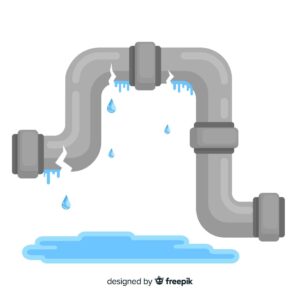Water heaters play an important role in the American household. They provide hot water for showers, dishes, and laundry. They also help keep the home warm in the winter months. Water heaters come in a variety of sizes, shapes, and styles. The most common type of water heater is an electric water heater. Electric water heaters are available in a variety of sizes, from small tankless heaters to large storage tanks. Gas water heaters are also available, but they are not as common as electric models.
As a homeowner, water heater repair and maintenance are a must. Basic water heater maintenance involves the yearly draining and flushing of the tank. This helps to remove sediment that can build up over time and cause the water heater to become less efficient. It also aids in the prevention of tank corrosion. If your water heater isn’t working right, you may need to do more maintenance on it. In this case, it is best to call a professional for help.
Water heaters are an important part of the home, and they should be well-maintained to work properly. Homeowners should learn about basic water heater maintenance so that they can keep their units in good working order. Additionally, homeowners should know when to call a professional for help with more difficult repairs or maintenance tasks.

Proper Maintenance of Residential Water Heaters
Maintaining your water heater is important if you want it to last longer and save money on repairs. Water heaters should be drained and flushed every six months to remove sediment buildup. The anode rod, which helps protect the tank from corrosion, should be replaced every three to five years. Also, you should check the pressure relief valve often to make sure it is working right.
If you have any questions about the maintenance of your water heater, or if you need to schedule a repair or replacement, please contact a licensed professional. Water heater maintenance is not a do-it-yourself project. If you don’t take care of the unit properly, you could void the warranty and hurt or kill yourself.
What are the Benefits of Flushing a Water Heater?
One of the best ways to make your water heater last longer and avoid costly repairs is to flush it regularly. When sediment builds up in the tank, it can lead to several problems, such as reduced efficiency, increased wear and tear, and even premature failure. By flushing the unit, sediment and other debris are removed. This makes sure that your water heater works better and lasts longer.
How Often Should You Flush Your Water Heater?
It is generally recommended that you flush your water heater once a year. If you have hard water, live in an area with high mineral content, or use your unit frequently, you may need to flush it more often.
How Long Does It Take to Flush a Water Heater?
The entire process of flushing a water heater takes about 30 minutes. However, you will need to allow the unit to cool down before beginning, so it is best to start the process early in the day.
3 Reasons Why You Should Flush Your Water Heater
1. Remove Sediment and Debris
Over time, sediment and other debris can build up in your water heater tank. This can lead to a number of problems, such as reduced efficiency, increased wear and tear, and even premature failure. By flushing the unit, sediment and other debris are removed. This makes sure that your water heater works better and lasts longer.
2. Prolong the Life of Your Water Heater
Regular maintenance is essential to the longevity of your water heater. Flushing the unit annually can help to prolong its life, saving you money in the long run.
3. Improve Efficiency
When sediment builds up in the tank, it can cause your water heater to run less efficiently. This means that it will take longer to heat up, and you may not have as much hot water available when you need it. By flushing the unit, sediment and other debris are removed, which makes your water heater run better.
5 Basic Steps in Flushing Your Water Heaters
Flushing your water heater regularly is important in maintaining its efficiency and longevity. Most manufacturers recommend that you flush your water heater at least once a year, but twice a year is even better. This simple maintenance task only takes a few minutes and can save you money in the long run by preventing sediment build-up, which can lead to costly repairs.
To flush your water heater, follow these simple steps:
1. Turn off the power. If you have a gas water heater, you will need to turn off the gas before beginning. For electric units, simply turn off the power at the breaker box.
2. Attach a hose to the drain valve and open it to release the water.
3. Once the tank is empty, close the valve and fill it with a solution of 50% water and 50% vinegar. Let this mixture sit for 30 minutes to dissolve any sediment or debris that may be clinging to the sides of the tank.
4. Open the drain valve again and allow all of the vinegar solution to flush out of the unit.
5. Close the valve and turn on your water heater.
Once the unit is full, turn off the cold water supply and close the pressure relief valve. Turn on the power to the unit (or flip the switch on the circuit breaker) and allow the unit to heat up to its normal operating temperature.
If you have any questions about how to properly flush your water heater, please contact a licensed professional. Improper maintenance can void your warranty and could result in serious injury or even death.
How to Clean a Water Heater with Vinegar
If you have a gas water heater, you will need to turn off the gas before beginning. For electric units, simply turn off the power at the breaker box. Next, attach a hose to the drain valve and open it to release the water. Once the tank is empty, close the valve and fill it with a solution of 50% water and 50% vinegar.
Let this mixture sit for 30 minutes to dissolve any sediment or debris that may be clinging to the sides of the tank. Finally, open the drain valve again and allow all of the vinegar solution to flush out of the unit. Close the valve and turn on your water heater.
Are Leaking Water Heaters Repairable?
Water heaters are a common source of leaks in the home. Some leaks can be fixed, but others may need the whole unit to be replaced. If your water heater is leaking, you need to find out where the leak is coming from and decide if it can be fixed or if it needs to be replaced.
The most common type of water heater leak is a dripping faucet. This type of leak is usually caused by a loose washer or O-ring. Tightening the packing nut on the faucet usually stops the drip. If the drip persists, you may need to replace the washer or O-ring.
Another common type of leak is a slow drip from the pressure relief valve. The pressure relief valve is a safety device that releases pressure from the tank if it becomes too high. A slow drip from this valve is usually caused by a faulty or improperly installed valve. Replacing the valve is the only way to stop the leak.
A water heater leak might not seem too concerning, however, if ignored, it could cause extensive damage to your home, even resulting in flooding. Also, not taking care of your water heater properly could void your warranty and be very dangerous. Therefore, if you have a leaking water heater, it is important to contact a licensed professional for repairs or replacement.
Is Water Heater Repair Expensive?
The cost of water heater repair will depend on the type of problem and the age and model of your unit. Some common problems, like a broken pressure relief valve or a broken thermostat, can be fixed easily and for a low cost. When there are more serious problems, like a cracked tank, the whole unit may need to be replaced.
The best way to avoid expensive repairs is to properly maintain your water heater. Regular maintenance, such as flushing the unit and checking the anode rod, can help prevent sediment buildup and extend the life of your water heater. Also, you should have a licensed professional service your water heater every three to five years. By scheduling regular maintenance appointments, you can catch small problems before they become big (and expensive) ones.
If you do need to repair your water heater, the cost will depend on the severity of the problem. For minor repairs, such as replacing a thermostat or pressure relief valve, you can expect to pay between $100 and $200. More serious problems, such as a cracked tank, will likely cost between $1,000 and $2,000 to repair. In some cases, it may be more cost-effective to replace the entire unit than to repair it.
If your water heater is leaking or not working properly, contact a licensed professional for help. Trying to fix the problem yourself could void your warranty and be extremely dangerous.
Water heaters are a common source of leaks in the home. Some leaks can be fixed, but others may need the whole unit to be replaced. If your water heater is leaking, you need to find out where the leak is coming from and decide if it can be fixed or if it needs to be replaced.











